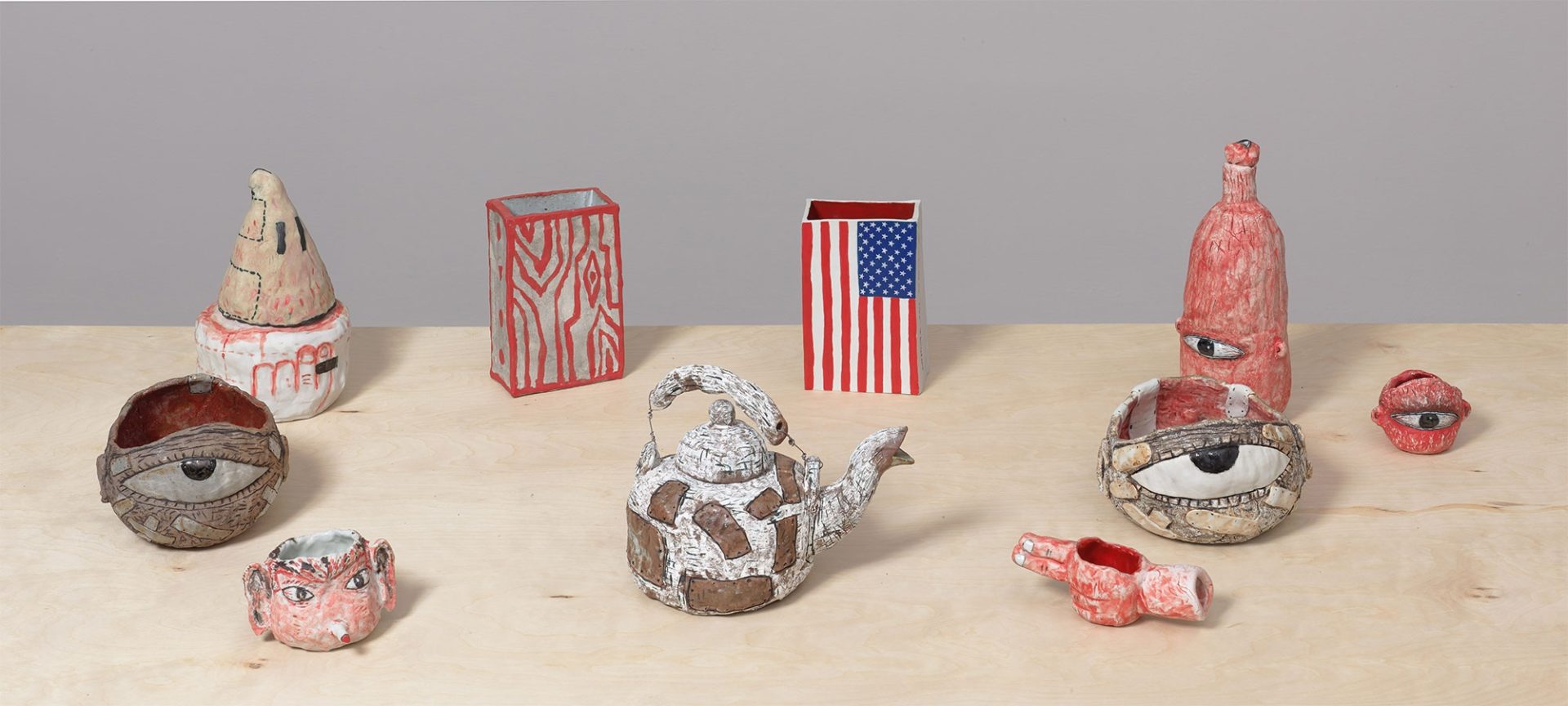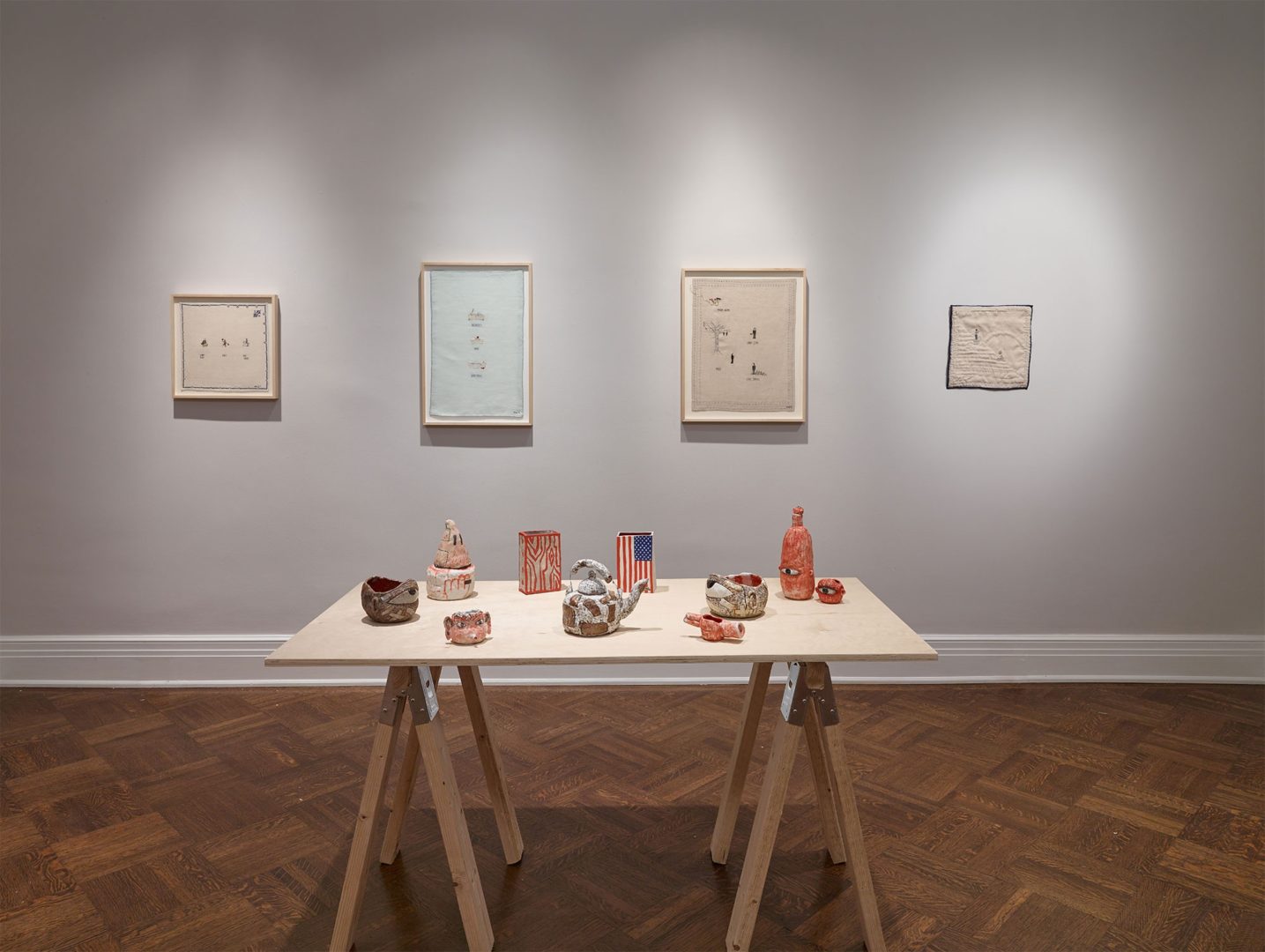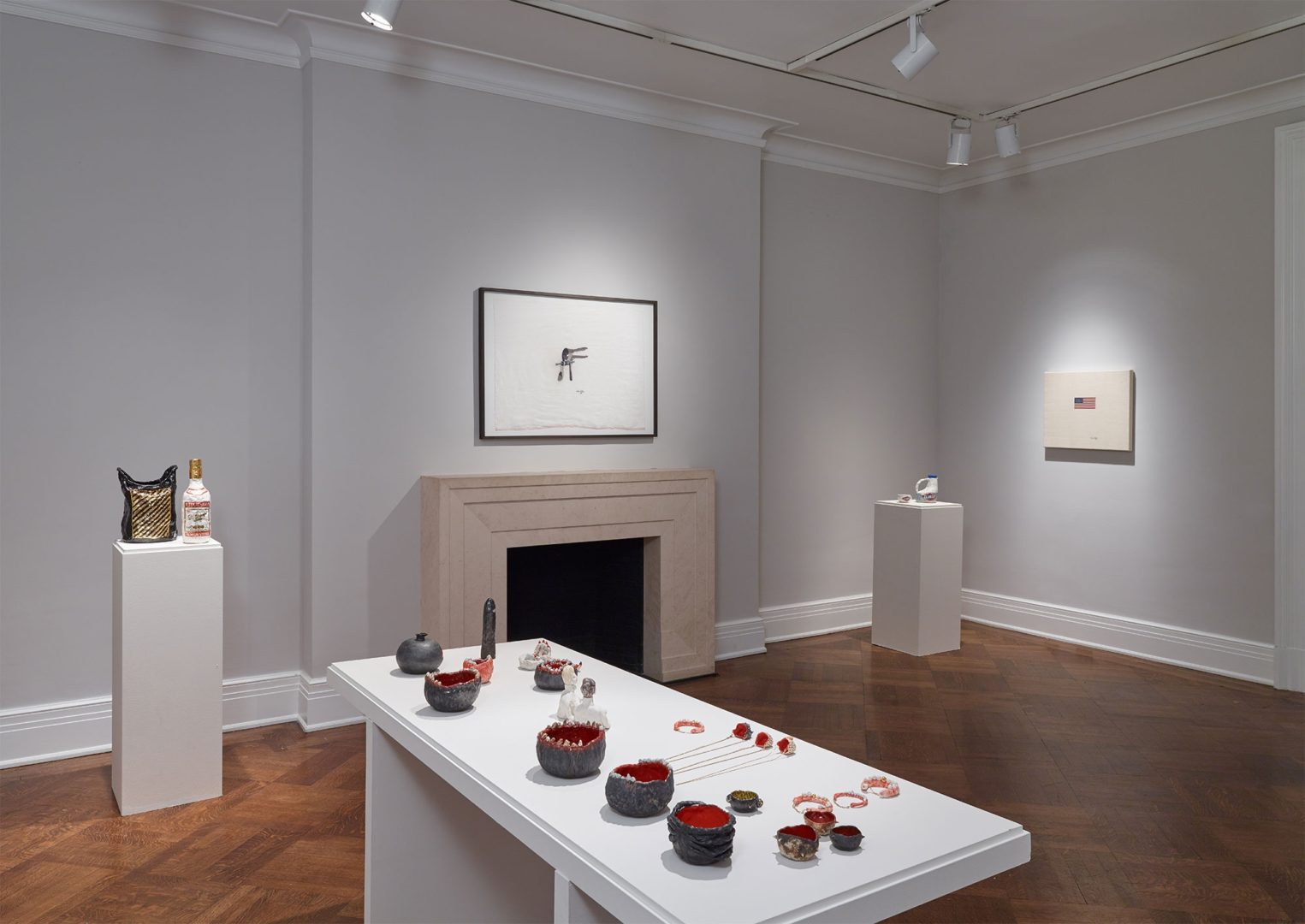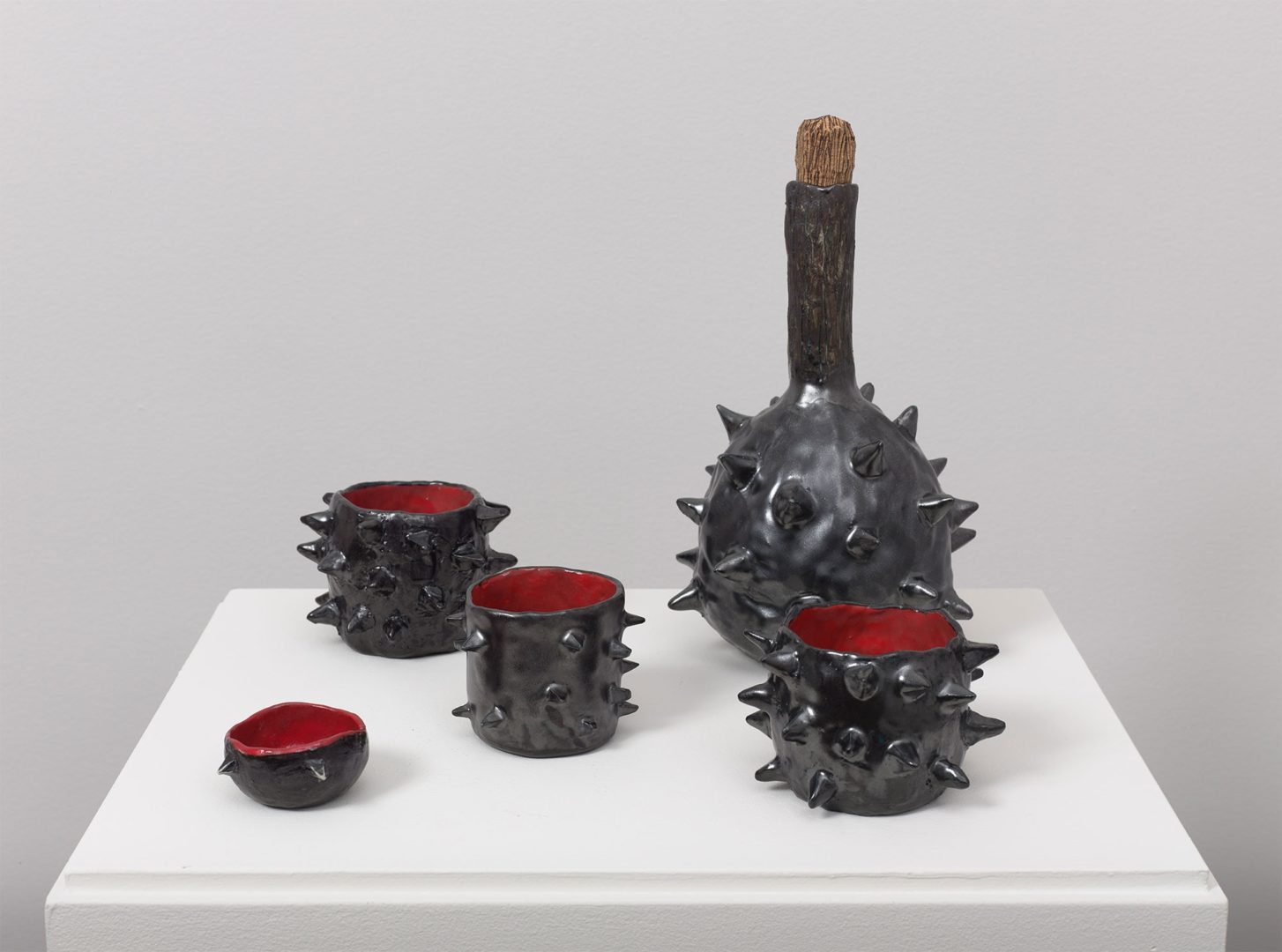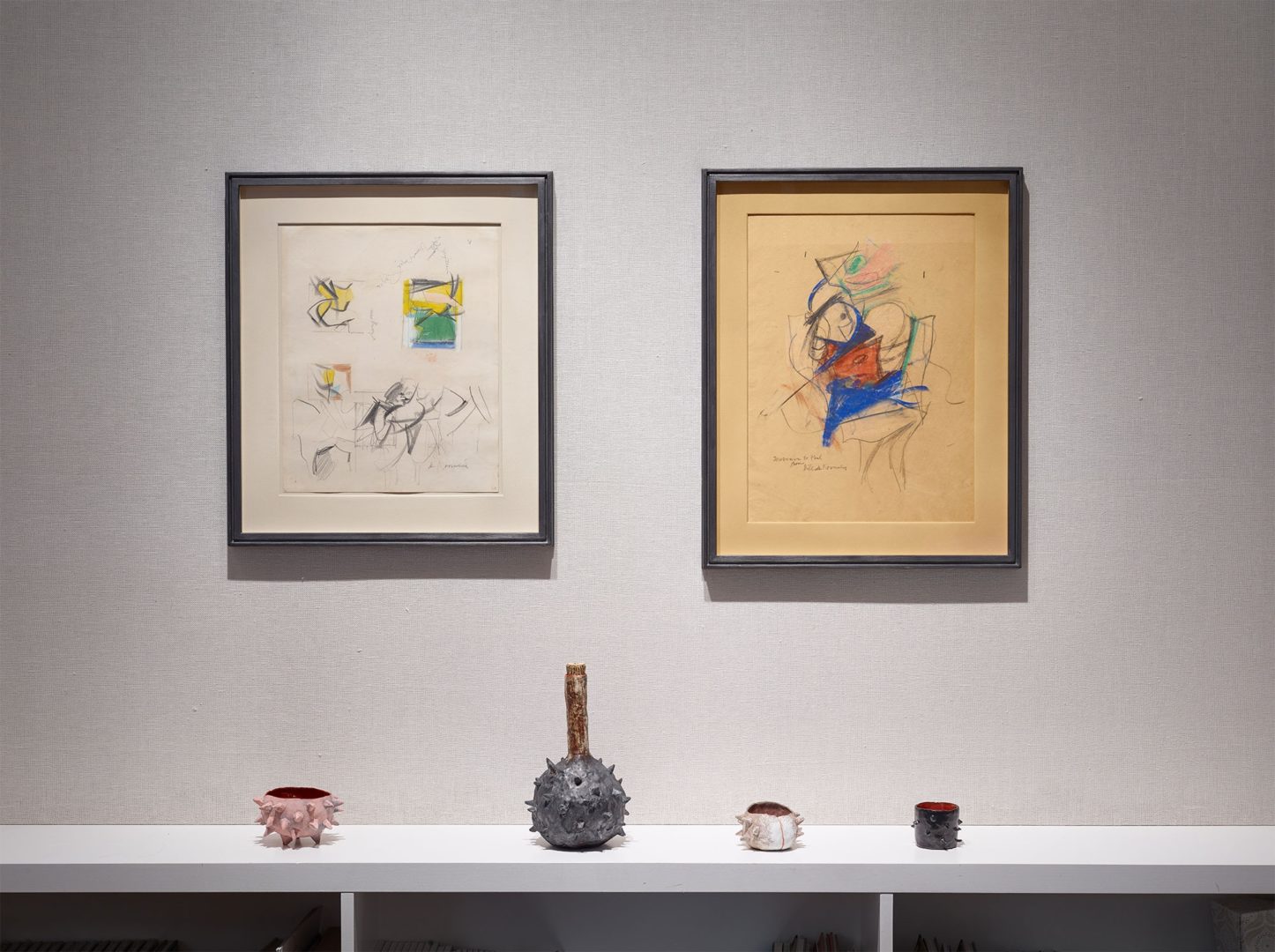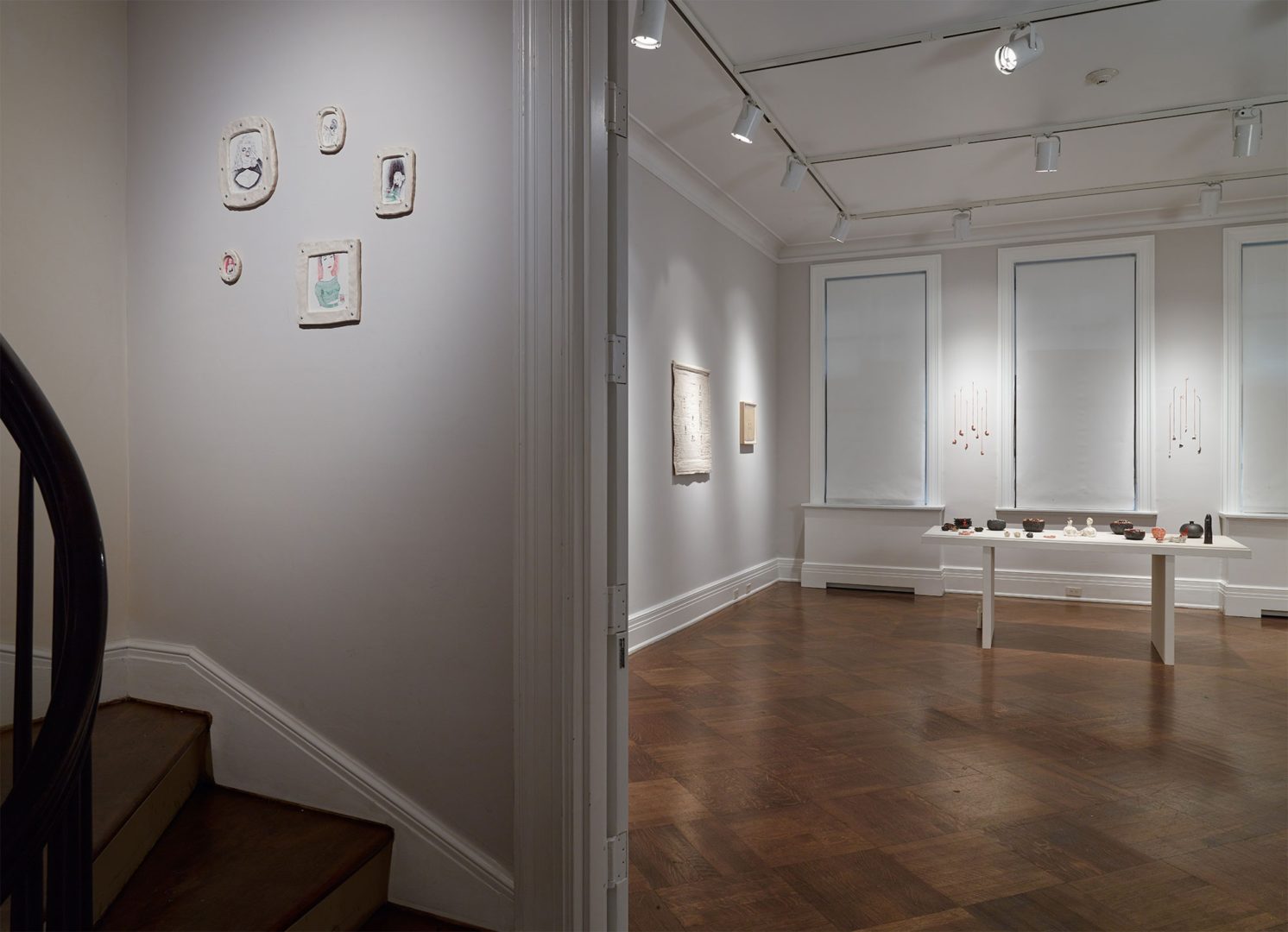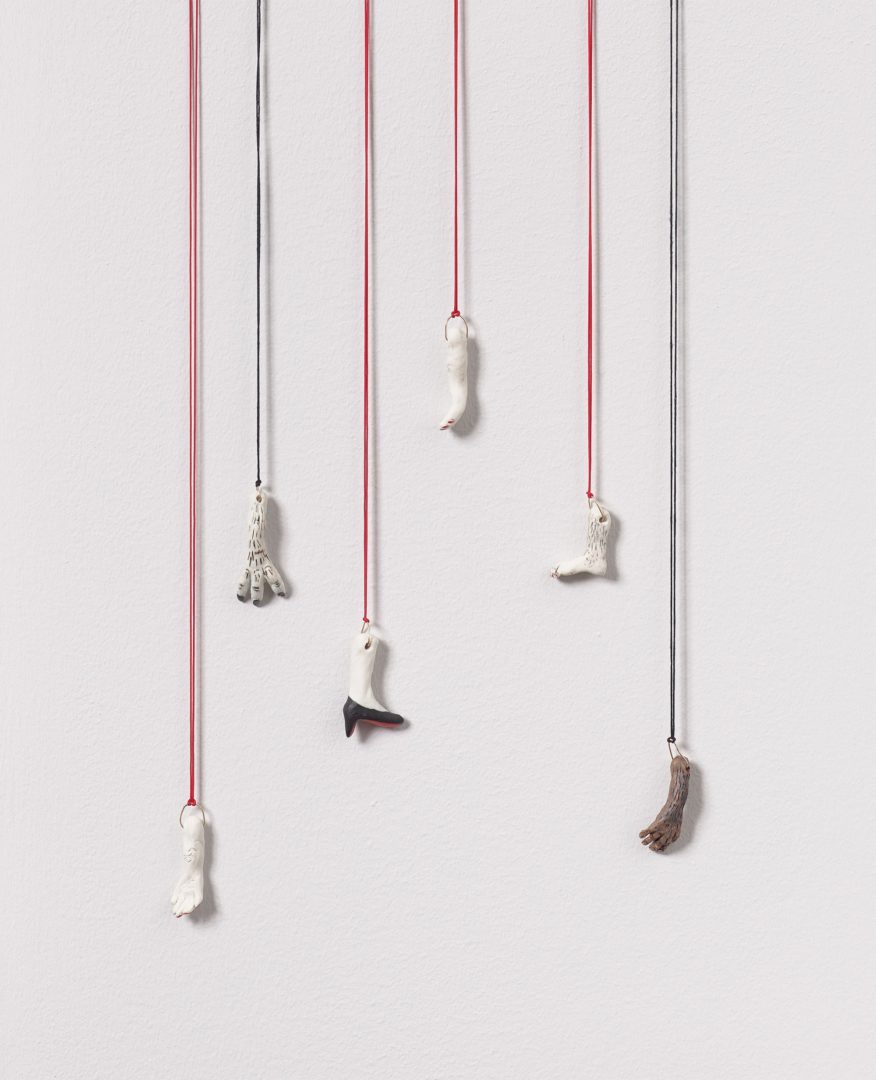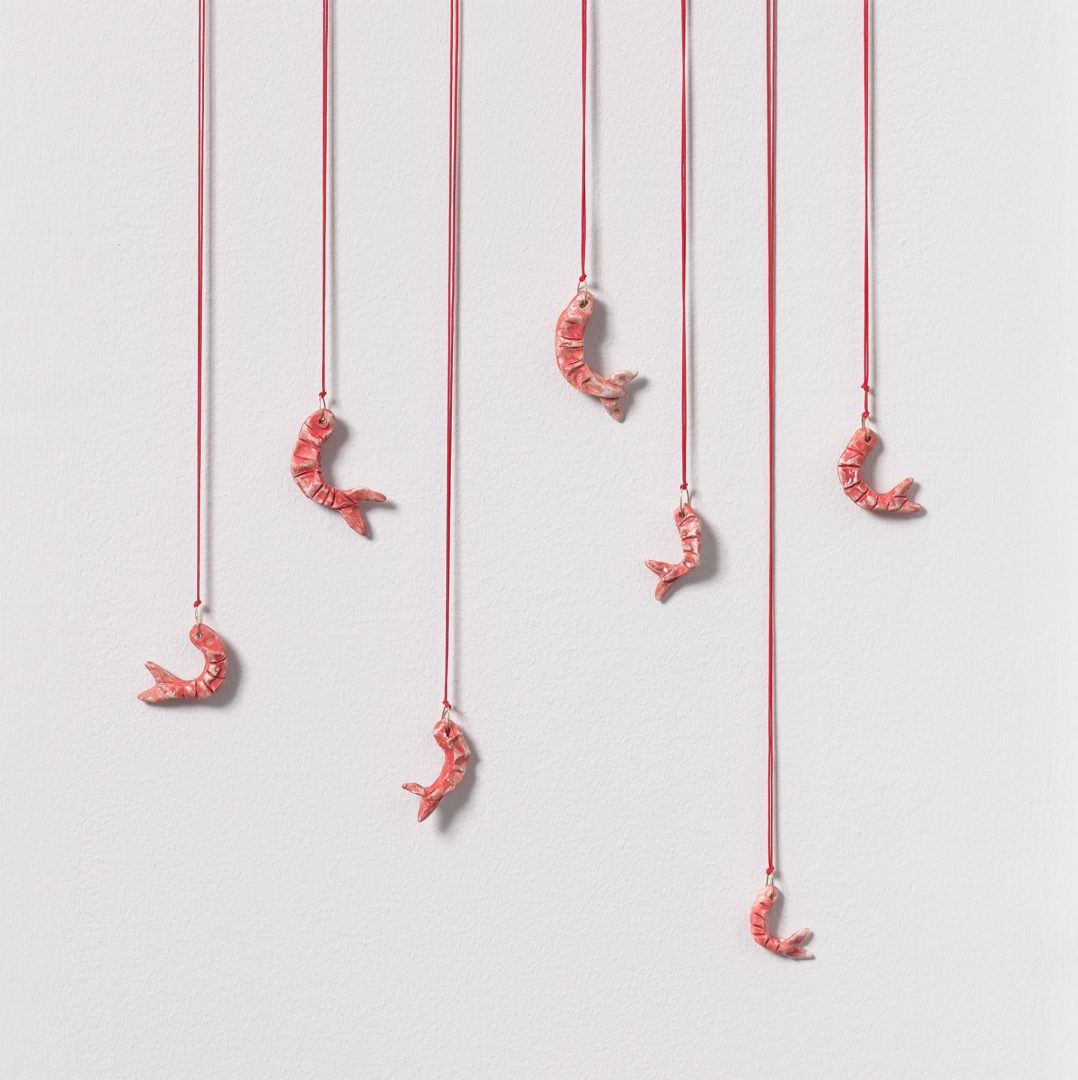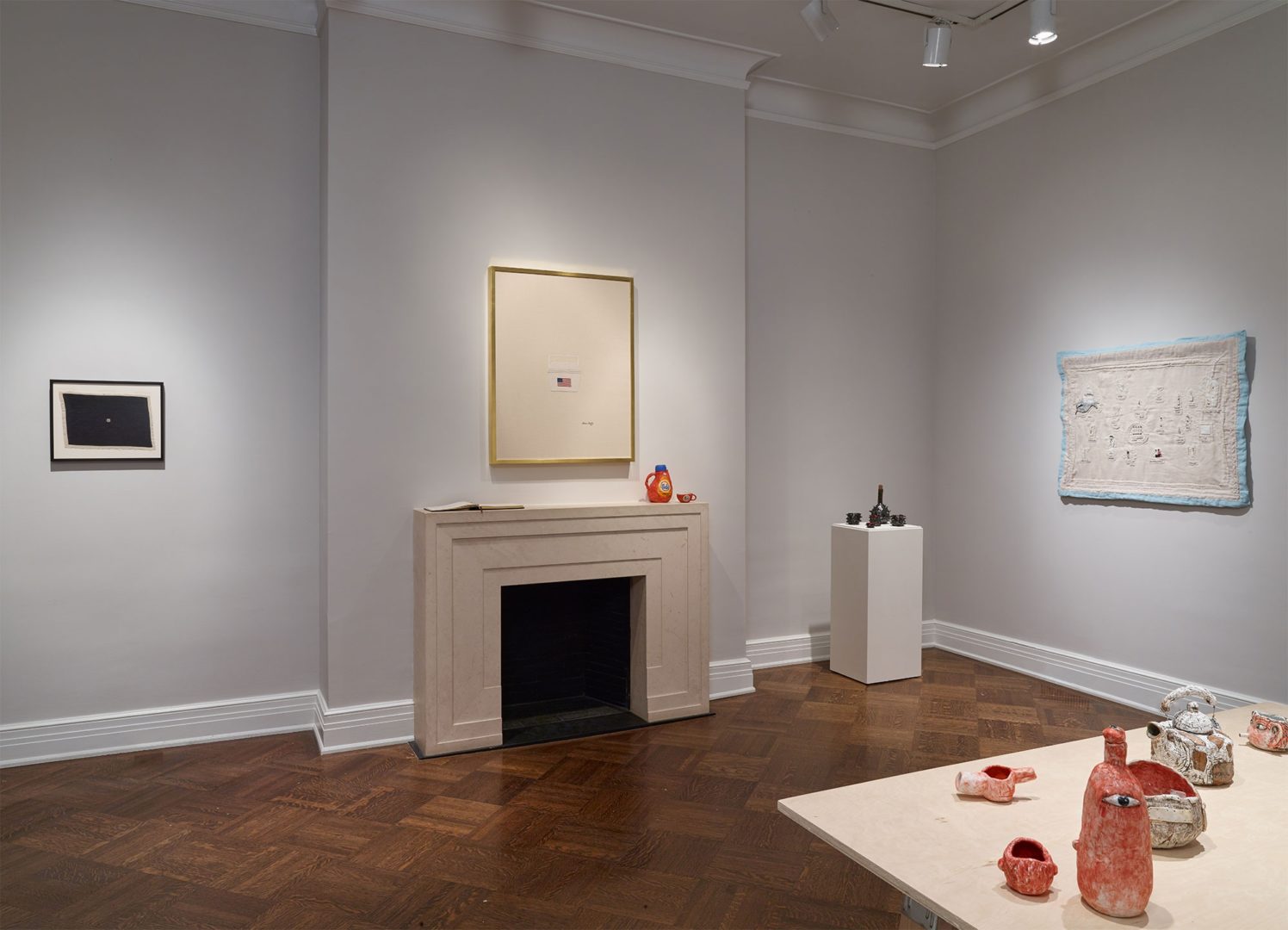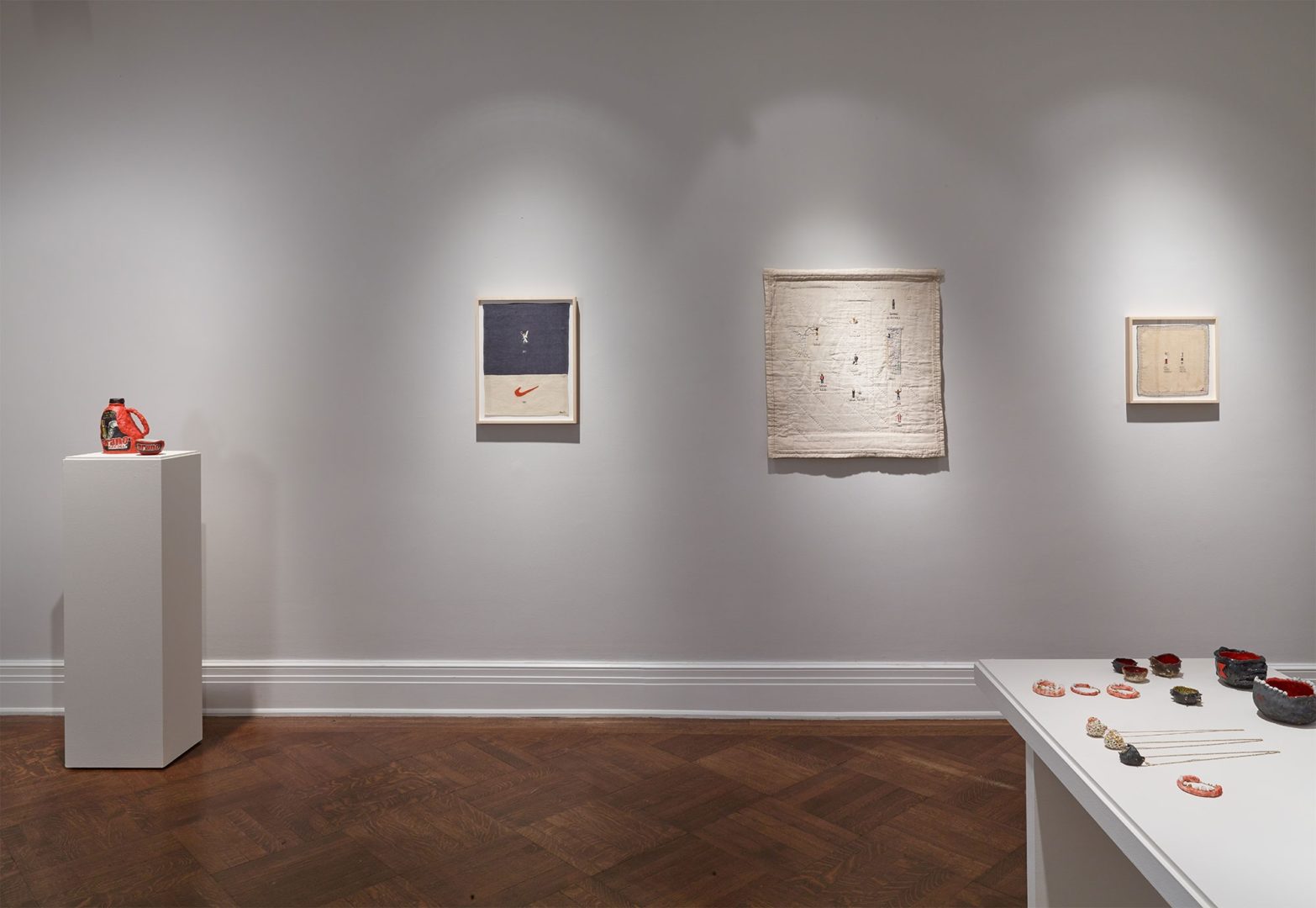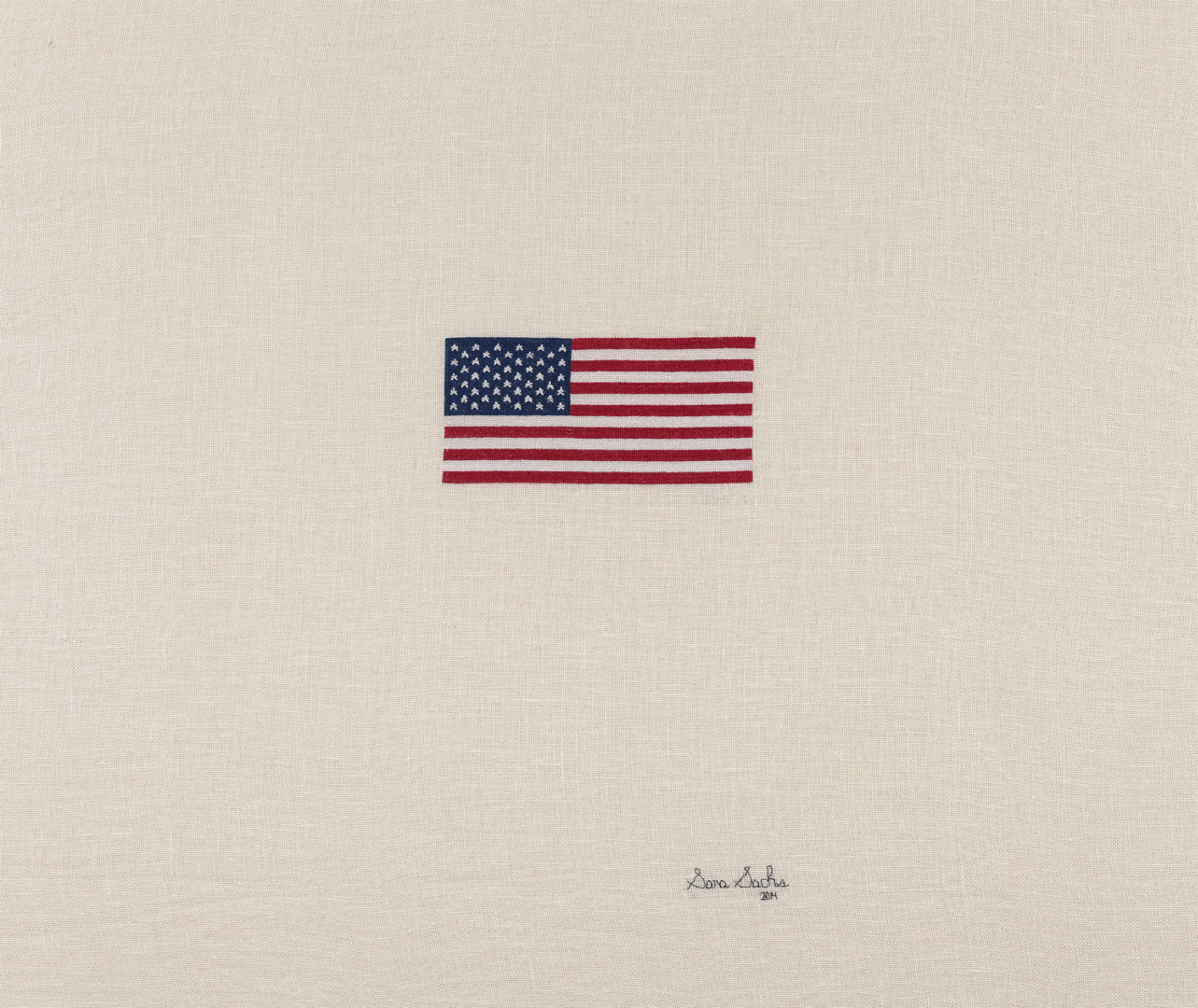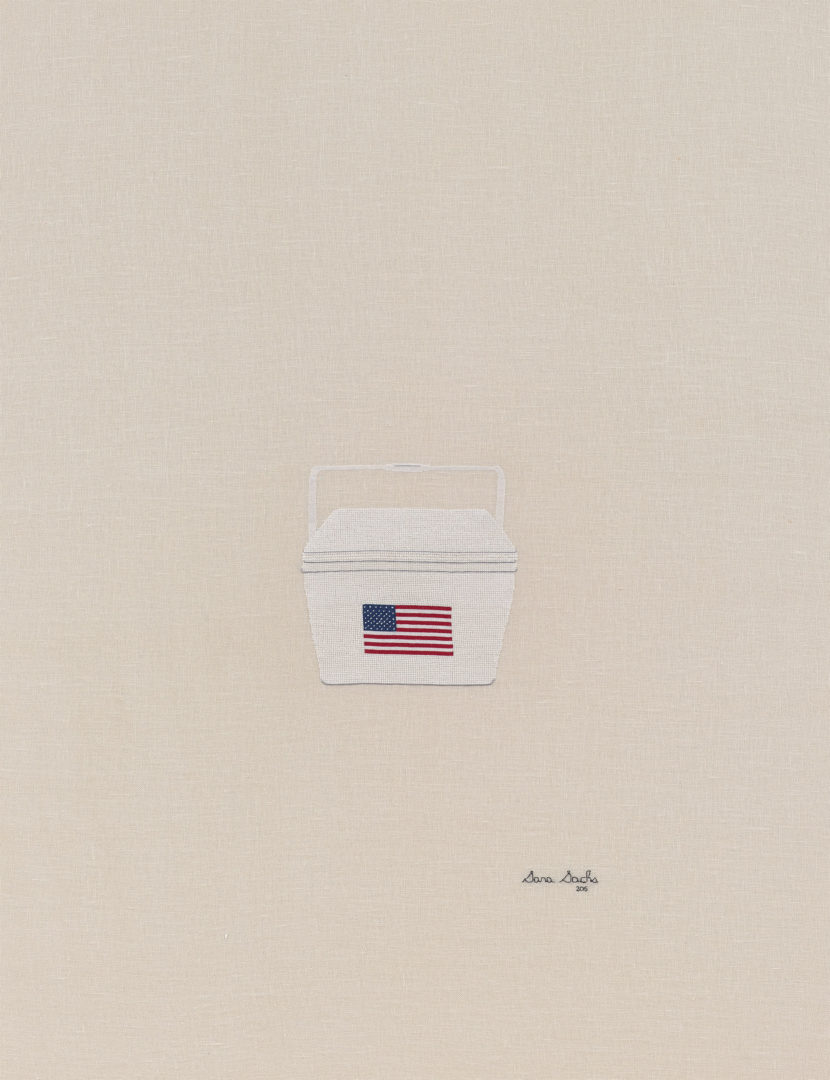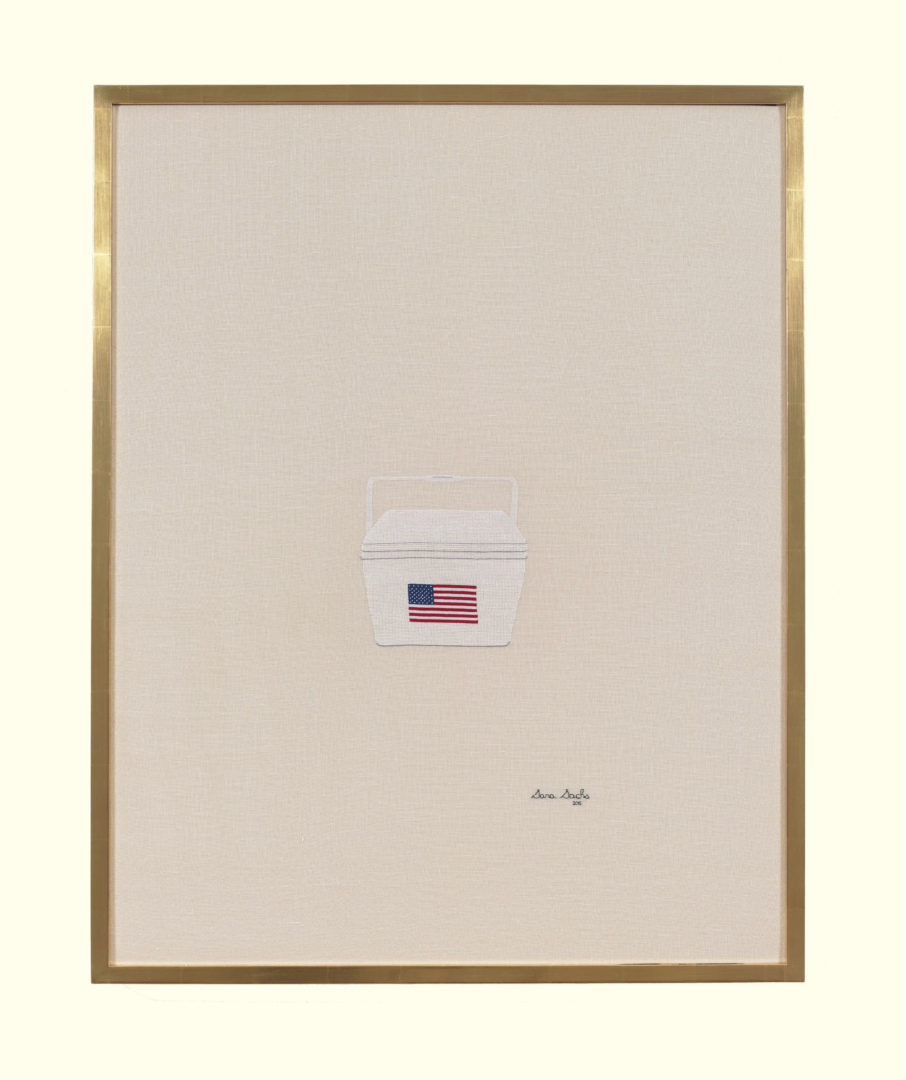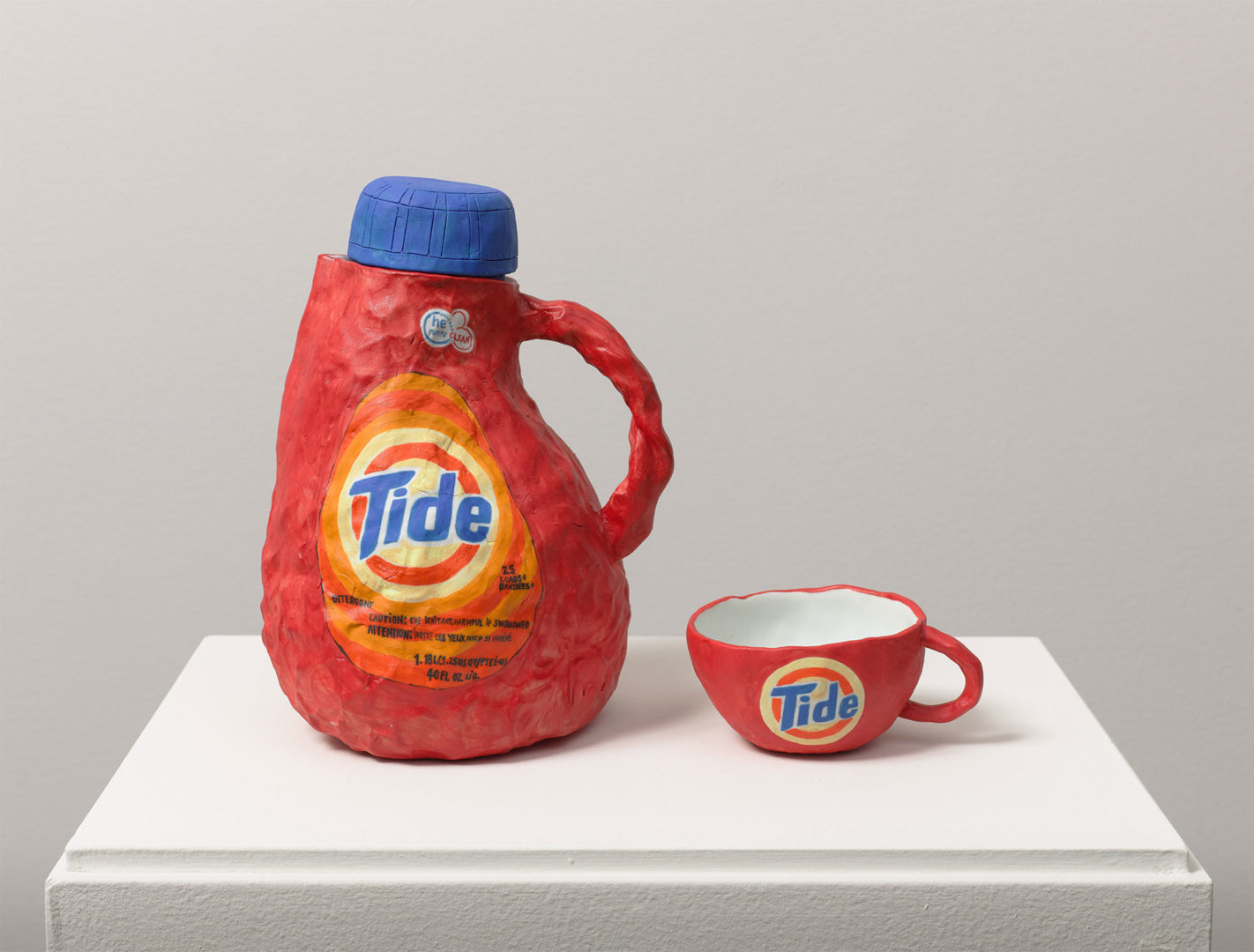Domestic Evil
September 9 – October 23, 2015
Dickinson Roundell Inc is pleased to present Domestic Evil, a contemporary group exhibition assembling works by Elsa Hansen, Sara Sachs and OKS (Oksana Todorova). The works on view simultaneously employ and resist craft based practices that have historically held strong associations with female domesticity. Ceramics, fiber arts and works on paper investigate the lineage of socially constructed codes of gender and a critique of these codes. Using allegory, iconography and eroticism, Hansen, Sachs and Todorova question the identification of femininity and the domestic sphere with craft based production.
Elsa Hansen has developed a vernacular form of portraiture that covers a wide-ranging cast of characters. Wonder Woman, The White Stripes, Archimedes, and Senator Robert Burd are just a sampling of the characters meticulously stitched into Hansen’s wall hangings. Within the more populated works, the suggestion of equivalence among disparate actors creates a network in which links, associations and relations are left open to interpretation.
Sara Sachs uses the medium of cross-stitched embroidery to represent objects and symbols associated with American culture, high-fashion industry, and female anatomy. Sachs’ technique converts these objects into two dimensional handmade interpretations. The painstaking and meticulous attention to detail appears antithetical to the standard production methods of the objects they depict. Sachs subverts the traditional associations of craft with singularity and individuality by depicting mass produced objects and equally challenges the dominant perception of mass production as lacking the fundamental craft quality arising from individual fabrication.
OKS (Oksana Todorova) stays faithful to the form and function of decorative objects and domestic design while distorting the idealized home life they signify to explore the unconscious, the disembodied, the repressed and the forbidden. In her wall drawings, Todorova explores the forlorn drinking activities of a dejected and repressed group of women. In the moment of capture, the women have freed themselves from social roles and functions through intoxication, representing a rejection of their feminine identification or a minor instance of upheaval.

